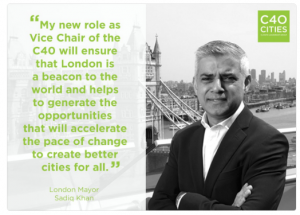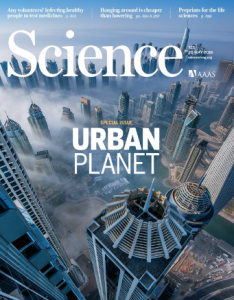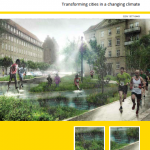Site search:
-
What’s new?
Energy for London Tags
Brent Buildings Camden Carbon Emissions CHP Cities Climate Adaptation Community Heating Community Initiatives Croydon Data DECC Decentralised Energy Distribution ECO Energy Costs Energy Efficiency Enfield FIT Fuel Poverty Funding Green Deal Hackney Haringey Housing Islington Lambeth Library Local Authorities Mayor Newham Ofgem Olympics Photovoltaics Planning RE:FIT RE:NEW Renewable Energy Retrofit Southwark Tower Hamlets Transport Waltham Forest Waste WestminsterEnergy Archives:
- February 2021 (1)
- January 2021 (15)
- December 2020 (15)
- November 2020 (9)
- October 2020 (3)
- August 2020 (5)
- July 2020 (3)
- June 2020 (4)
- April 2020 (10)
- March 2020 (5)
- February 2020 (2)
- January 2020 (3)
- October 2019 (1)
- September 2019 (4)
- August 2019 (2)
- July 2019 (1)
- August 2018 (1)
- November 2016 (8)
- October 2016 (8)
- September 2016 (2)
- August 2016 (8)
- July 2016 (14)
- April 2016 (12)
- March 2016 (16)
- February 2016 (8)
- January 2016 (4)
- December 2015 (1)
- November 2015 (1)
- October 2015 (16)
- September 2015 (3)
- June 2015 (1)
- May 2015 (1)
- April 2015 (1)
- March 2015 (1)
- February 2015 (1)
- January 2015 (1)
- December 2014 (18)
- November 2014 (4)
- August 2014 (8)
- July 2014 (7)
- June 2014 (25)
- May 2014 (8)
- April 2014 (4)
- March 2014 (12)
- February 2014 (7)
- January 2014 (13)
- December 2013 (11)
- November 2013 (15)
- October 2013 (15)
- September 2013 (18)
- August 2013 (5)
- July 2013 (20)
- June 2013 (33)
- May 2013 (8)
- April 2013 (16)
- March 2013 (25)
- February 2013 (14)
- January 2013 (20)
- December 2012 (23)
- November 2012 (23)
- October 2012 (25)
- September 2012 (14)
- July 2012 (12)
- June 2012 (43)
- May 2012 (20)
- April 2012 (8)
- March 2012 (40)
- February 2012 (39)
- January 2012 (40)
- December 2011 (22)
- November 2011 (40)
- October 2011 (33)
- September 2011 (48)
- August 2011 (40)
- July 2011 (58)
- June 2011 (41)
- May 2011 (80)
- April 2011 (38)
- March 2011 (33)
- February 2011 (25)
- January 2011 (24)
- December 2010 (3)
- November 2010 (7)
- October 2010 (6)
- September 2010 (7)
- August 2010 (1)
- July 2010 (2)
- June 2010 (4)
- May 2010 (1)
- March 2010 (3)
- February 2010 (3)
- December 2009 (5)
- November 2009 (2)
- October 2009 (3)
- July 2009 (3)
- June 2009 (1)
- April 2009 (1)
- March 2009 (1)
- February 2009 (1)
- January 2009 (1)
- December 2008 (2)
- October 2008 (1)
- September 2008 (1)
- July 2008 (1)
- March 2008 (2)
- January 2008 (2)
- October 2007 (1)
- September 2007 (3)
- July 2007 (1)
- March 2007 (1)
- February 2007 (3)
- November 2006 (3)
- August 2006 (1)
- February 2006 (1)
- May 2005 (1)
- February 2004 (1)
Monthly Archives: July 2016
Mayor Elected C40 Vice Chair
 25 July 2016: The Mayor has today been appointed a Vice Chair of C40 Cities, representing the Europe region on the group’s steering committee, alongside Copenhagen. C40’s press release included the following statement from the Mayor:
25 July 2016: The Mayor has today been appointed a Vice Chair of C40 Cities, representing the Europe region on the group’s steering committee, alongside Copenhagen. C40’s press release included the following statement from the Mayor:
“… I want London to be at the cutting edge of new green technologies, generating the growth and jobs of the future. My new ambitions for Energy for Londoners, and my new role as Vice Chair of the C40 will ensure that London is a beacon to the world and helps to generate the opportunities that will accelerate the pace of change to create better cities for all.”
The next major convening of the C40 Steering Committee will take place at the C40 Mayors Summit, which will bring together mayors and sustainability leaders from all over the world. It will be held in Mexico City November 30 – December 2, 2016.
Energy and Climate Questions to the Mayor
July 2016: This month Mayor’s Question Time included the following:
an update on a GLA study to evaluate the potential for the use trackside solar power production; Post Brexit, how the Mayor will use his role in the Brexit negotiating team to preserve the hard-fought environmental protections; the number of decentralised energy projects that are projected to come online this year; how the Mayor can encourage Londoners to switch energy suppliers; an estimate of the number of connections that will be provided with heat from the Beddington energy from waste plant to the Sutton Decentralised Energy Network (SDEN) – and whether Barratt Homes has signed a heat agreement with the plant’s operator, Viridor; whether the Mayor will respond to the Government’s recently released Energy Company Obligation (ECO) consultation;
work to encourage energy efficiency improvements in the private rented sector (PRS);
the RE:NEW home energy efficiency retrofit programme’s strategy over the coming year; the number of jobs linked to the green economy in London; the Mayor’s role with C40 Cities, and borough surface water management plans
Previous months questions to the Mayor can be found here.
Posted in News, Renewable Energy
Tagged Brexit, Climate Adaptation, Community Heating, Decentralised Energy, Energy Efficiency, Housing, Photovoltaics, RE:NEW, Sutton, Transport, Waste
Leave a comment
London Hydrogen Action Plan Programme Approved
July 2016: GLA approval of the London Hydrogen Action Plan funding for 2016/2017 which includes work:
“…. on delivering the London Hydrogen Action Plan (LHAP). LHAP makes the case for hydrogen investment and sets out the strategic framework and timeline (from now until 2017) for an action plan addressing vehicles and infrastructure, production and storage, stationary and early market applications. It aims to move beyond demonstrations and trials and to commercialise hydrogen and fuel cell projects that support the Mayor’s environmental, transport, social, economic and development priorities.”
Full information on the approval document can be seen on the GLA website here and further background to the London Hydrogen Action Plan at hydrogenlondon.org
New GLA Decentralised Energy Framework Notice
July 2016: The GLA have issued a tender to secure a range of services related to supporting the growth of decentralised energy projects in the capital:
The tender (GLA80814 – Decentralised Energy Framework) (direct download) sets out that the GLA seeks consultants with experience in:
- developing business cases and business plans for DE projects
- structuring templates for project delivery
- providing commercial advise to private and public sector clients in negotiating key agreements
- assessing different delivery vehicles and ownership structures, such as Public Private Partnership (PPP) options — Special Purpose Vehicle (SPV) and Joint Venture (JV) structures
- producing early project commercial documentation (including risk registers) and agreements
- working with financial advisors in providing guidance on possible funding sources, including maintaining relationships with banks and investment boutiques
- in-depth knowledge of energy markets, energy trading and negotiations.
Much of the work undertaken in this area to date, carried out by the GLA through the Decentralised Energy Project Delivery Unit (DEPDU) – which officially closed in July 2015 – is posted online at www.londonheatmap.org.uk.
Posted in Decentralised Energy, News
Tagged CHP, Community Heating, Decentralised Energy
Leave a comment
Smart Cities and the Built Environment
 14 July 2016: Osborne Clark – the “smart cities law firm” – released a report last week examining how “how smart built environments leverage data, new technology and innovative and collaborative thinking to deliver services that benefit citizens”.
14 July 2016: Osborne Clark – the “smart cities law firm” – released a report last week examining how “how smart built environments leverage data, new technology and innovative and collaborative thinking to deliver services that benefit citizens”.
The report Smart cities in Europe: The future of the built environment includes a profile of the regeneration of Kings Cross: “Why is this redevelopment a good example of a smart built environment? For a start, the building utilises renewable energy. Solar
panels that generate around 10% of the
station’s energy requirements were installed
on the 2,500m² renovated train shed roof. A
combined heat and power (CHP) plant will
also provide locally generated power to new
businesses and homes on the site.”
Posted in Decentralised Energy, Library, News, Renewable Energy
Tagged Camden, CHP, community energy, Photovoltaics, smart cities
Leave a comment
Islington District Heating Planning Guidance Published
 July 2016: Islington have recently published new environmental design planning guidance on heat networks: The guidance is released in two parts – with Part 1 giving an overview of the existing and and planned Islington heat networks, as well as an introduction to the principal behind heat networks (referencing the GLA’s 2014 London Heat Network Manual). Part 2 provides technical guidance to developers looking to connect to Islington’s Bunhill heat and power network.
July 2016: Islington have recently published new environmental design planning guidance on heat networks: The guidance is released in two parts – with Part 1 giving an overview of the existing and and planned Islington heat networks, as well as an introduction to the principal behind heat networks (referencing the GLA’s 2014 London Heat Network Manual). Part 2 provides technical guidance to developers looking to connect to Islington’s Bunhill heat and power network.
The Council sets out that it is “committed to working with partners to promote and develop decentralised energy (DE) networks, with a particular focus on areas of the borough with the greatest potential for such networks. Existing DE networks within the borough will be protected and their expansion supported. All development will be required to contribute to the development of DE networks, including by connecting to such networks where these exist within the proximity of the development.”
Posted in Decentralised Energy, News, Uncategorized
Tagged Community Heating, Decentralised Energy, Islington
Leave a comment
Sadiq “…off to a great start”
13 July 2016: Great Carbon Brief interview with Mark Watts, CEO of the C40 Cities group. Prior to his role at C40, Mark was the energy and climate change lead in City Hall during Ken Livingstone’s two terms as Mayor, where ground breaking initiatives such as London’s congestion charge and the 2007 Climate Change Action Plan were introduced.
The exchange covers many key areas across the city and climate agenda, and ends with a short discussion on London – with some positive remarks made by Mark on new Mayor, Sadiq Khan, first weeks in office – but pointing out that “We await with interest him appointing a deputy mayor for environment, which is absolutely needed.” Though a number of Deputy Mayors have been appointed by Sadiq over the past few weeks (Transport, Culture, Business, Housing etc) – an environment role remains vacant.
“CB: Okay, and much closer to home — what does a London of the future look like to you?
MW: Well, I think London actually starts from quite a good place, because here we already have a very high degree of green space. We’ve got a good level of density. It could it be a bit denser, a bit more like Paris perhaps, but basically the legacy of the Georgians and the Victorian era has been quite helpful for us. I think the thing that probably where London has the greatest opportunity — it actually links back to your question around the investor community — is that London also has the benefit of not merely of being in some sense a model for how a low carbon city works, with this very great public transport system, having a congestion pricing already in place, and all the green space, but also has a large degree of the investor community here, that if we can unlock that capital that’s sitting there ready to be used to build a green economy of the future, then you really will be able to realise the vision of a future low carbon city. And also one, you know, in a context of Brexit, one of the great things about London is its extraordinary cultural diversity, and I suspect that the cultural diversity is going to be a great benefit to delivering a low carbon world, because the cities where people of all different cultures and religions and geographies, have already learned to work together so well, as they have London, are most likely to be the ones that can also cooperate around this extraordinary challenge of avoiding catastrophic climate change.
CB: And do you have high hopes for Sadiq Khan in taking us towards this?
MW: Well, he’s got off to a great start, hasn’t he? I think this huge focus on settling inequality and some really bold moves within the first few weeks. We await with interest him appointing a deputy mayor for environment, which is absolutely needed. They need that senior level leadership and focus as has happened under the previous mayors. But, yeah, I think we expect great things from Mayor Khan.”
Will the new Energy Secretary push the cities and climate agenda?
14 July 2016: The Department of Energy and Climate Change (DECC) is no more. Rumours started early on in the day via a tweet from the Editor of ConservativeHome:
This was followed shortly after by Energy Minister Andrea Leadsom failing to deny rumours during DECC Oral Questions session in the House of Commons.
City-integrated renewable energy for urban sustainability
 July 2016: A recent issue of the journal Science published a number of articles around the theme Urban Planet. One of the papers published was entitled: City-integrated renewable energy for urban sustainability (link to full text). The paper takes a high-level overview on a range of key carbon reduction opportunities at the city-level.
July 2016: A recent issue of the journal Science published a number of articles around the theme Urban Planet. One of the papers published was entitled: City-integrated renewable energy for urban sustainability (link to full text). The paper takes a high-level overview on a range of key carbon reduction opportunities at the city-level.
“To prepare for an urban influx of 2.5 billion people by 2050, it is critical to create cities that are low-carbon, resilient, and livable. Cities not only contribute to global climate change by emitting the majority of anthropogenic greenhouse gases but also are particularly vulnerable to the effects of climate change and extreme weather. We explore options for establishing sustainable energy systems by reducing energy consumption, particularly in the buildings and transportation sectors, and providing robust, decentralized, and renewable energy sources. Through technical advancements in power density, city-integrated renewable energy will be better suited to satisfy the high-energy demands of growing urban areas. Several economic, technical, behavioral, and political challenges need to be overcome for innovation to improve urban sustainability.”
Posted in Decentralised Energy, Energy Efficiency, Library, News, Renewable Energy, Uncategorized
Tagged Cities
Leave a comment
Future London Climate Risks Set Out
12 July 2016: The Committee on Climate Change (CCC) Adaptation Sub Committee (ASC) published a major new study today providing a detailed scientific assessment of climate change risks to UK. Further information is provided in the following press release, a summary synthesis report, which also links to the individual six sector chapters – which includes a chapter on ‘People and the Built Environment‘ (which is examined below)..
Below is a summary of some of the points most relevant to London from the synthesis report:
- Urban water management: climate change is expected to lead to significant increases in heavy rainfall, with sewers in many urban areas already at or over capacity. More action is needed protect individual properties whilst also beginning to redesign urban landscapes (such as through the use of sustainable drainage approaches) to be able to cope with more intense patterns of rainfall. [p32]
- At present, there are no comprehensive policies in place to adapt existing homes and other buildings to high temperatures, manage urban heat islands, nor safeguard new homes. The level of risk from overheating across the UK is unknown for hospitals, care homes, schools, prisons, and places of work. [p33]
- The urban heat island effect. UK planning strategies do not currently make specific recommendations for reducing the heat island effect such as through planning and urban design, beyond promoting urban green space. [p34]
- More action needed to deliver sustainable drainage systems, upgrade sewers where appropriate, and tackle drivers of increasing surface runoff (e.g. impermeable surfacing in urban areas). [p61]
- Climate-related hazards damage historic structures and sites now, but there is a lack of information on the scale of current and future risks, including for historic urban green spaces and gardens as well as structures.[p66]
- The action underway in London to assess and manage risks of overheating on public transport should continue, together with similar action as needed elsewhere in the UK. [p66]
Posted in Library, News
Tagged Buildings, Cities, Climate Adaptation, Health, Transport
Leave a comment
The future of RE:FIT?
July 2016: Following a win by the RE:FIT scheme at the prestigious Ashden Awards last month, an interesting article in BusinessGreen asks whether the scheme will continue under the new Mayor:
“Mayor Khan has promised action on energy efficiency through building standards and his proposed Energy for Londoners not for profit company. But with the Mayor’s Office yet to choose an environment appointee and currently reviewing all ongoing programs, it was unable at time of writing to provide BusinessGreen with any details about future plans for the RE:FIT scheme.”
However, a recent MQ response from the Mayor seems to set the issue to rest for now with the Mayor not only stating that the programme will continue, but will need to be ramped up:
Tony Devenish
Do you intend to continue with the GLA’s RE:FIT and RE:NEW energy efficiency programmes? How effective do you understand the programmes have been?
The Mayor
I intend to continue with homes and buildings retrofit programmes. But to achieve my ambitious target of becoming a zero carbon city by 2050 we will need to rapidly increase the pace of retrofitting, so I am currently exploring what more can be done.
Much more can be seen on RE:FIT on the GLA website
Urban adaptation to climate change
 July 2016: A new European Environment Agency (EEA) study “Urban adaptation to climate change in Europe 2016 – Transforming cities in a changing climate” has just been published. The report examines whether action on adaptation has led to more climate-resilient cities and if not, what needs to be changed.
July 2016: A new European Environment Agency (EEA) study “Urban adaptation to climate change in Europe 2016 – Transforming cities in a changing climate” has just been published. The report examines whether action on adaptation has led to more climate-resilient cities and if not, what needs to be changed.
The EEA has a few references to work undertaken in London such as:
- “London is installing white panels on top of its public transport buses to reflect the rays of the summer sun and keep the vehicles cooler” (which refers to a 2014 article here). and that;
- “London held a workshop on adaptation indicators in 2015 but as of November 2015 had not yet decided how it will take the work forward” (it is not immediately clear which workshops this comment refers to).
No mention is made in the study to London’s authoritative Climate Change Adaptation Strategy from 2011 or the London Plan’s climate change adaptation policies. (NB Mayor Boris Johnson had committed in February 2015 to produce an update to the adaptation strategy sometime in 2015. Following the non-publication of this update, responding to a question a year later, he committed to the update being produced before his departure as Mayor (May 2016) – however, as yet, no update has been released).




